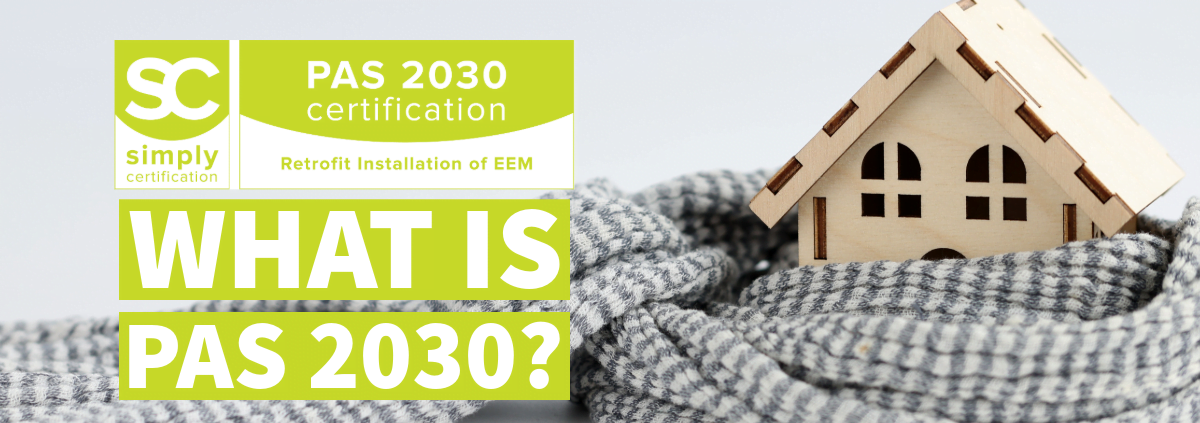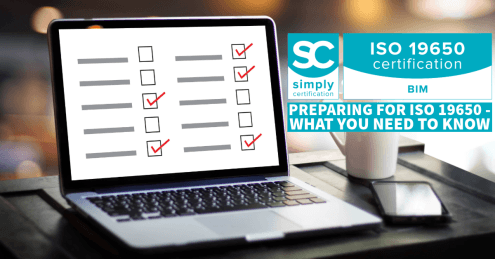PAS 2035/2030:2023 Standards – What’s changed?
What is PAS 2030?
The UK government has agreed to improve the energy efficiency of existing buildings to energy rating EPC C or above. This is part of a global pledge to reduce emissions from the built environment by 2050.
PAS 2030 is a Publicly Available Specification for the installation of energy efficiency measures in existing buildings which was first introduced for government energy efficiency schemes in 2013.
PAS 2030 is the overarching best practice standard, PAS2035 for residential buildings and PAS2038 for commercial.
The standards are updated every two years to take in new learning and best practices.
The PAS2030 standard was introduced to ensure that energy efficient installations were completed to a high quality standard for the end user, ensuring a whole house and whole project approach.
What this means for installers
As an installer, it is vital to be certified to an appropriate PAS 2030 standard to take part in government-funded energy efficiency schemes in England, in order to meet the commitment to reduce the UK’s carbon emissions by 78% by 2035 and achieve net zero by 2050. PAS 2030:2023 supersedes PAS 2030:2019+A1:2022 which remains current and will be withdrawn on 30 March 2025.
This is the starting point for the design of any future energy efficiency funding programmes set out by the UK government.
Current government schemes that require PAS 2030 certification include:
- Energy Company Obligation (ECO)
- Green Homes Grant Voucher Scheme (GHGVS)
- Green Homes Grant Local Authority Delivery scheme (LAD)
- Social Housing Decarbonisation Fund (SHDF)
- Home Upgrade Grant (HUG)
What is the current standard and when is it due to change?
Following a public consultation carried out in early 2023, the British Standards Institution (BSI) published the updated PAS 2035/2030:2023 standards on 28th September 2023.
PAS 2030:2023 supersedes PAS 2030:2019+A1:2022 which remains current and will be withdrawn on 30 March 2025.
Why do we need PAS2030?
PAS2035/2030:2023 is the Retrofit Standards Framework. There are 27 million homes in the UK and 17 million of those are below EPC C. This equates to 5 retrofits per minute on average for the next 30 years at a cost of £1 trillion.
The retrofit standards ensure that any energy efficient installations are done to a high standard, backed by TrustMark which ensures consumer protection.
What does PAS 2035/2030 cover?
For installers
PAS 2035 specifies requirements for retrofit of dwellings, including assessment of dwellings for retrofit, identification and evaluation of energy efficiency measures, design and specification of energy- efficiency measures and monitoring and evaluation of retrofit projects.
For occupants
PAS 2035 also specifies requirements for advising building occupants about improvement options appropriate to their homes, the efficient and appropriate use and maintenance of their retrofitted homes and monitoring and evaluating retrofit projects when appropriate.
What does the current PAS2030 standard cover?
PAS 2030 specifies requirements for the installation of energy-efficiency measures in existing dwellings. It includes requirements on:
- Installation processes
- Process management and service provision
- Installation methods, equipment, tools, product, system and material suitability
- Commissioning of installed measures
- Training, skills and vocational qualification of the people undertaking such installation.
PAS 2030 also includes information to assist retrofit installers to fulfil their responsibility to ensure the effective functioning of energy- efficiency measures installed in the same dwelling.
What’s new about PAS 2035/2030:2023?
- During the transition period of 18 months, any projects initiated before the transition will be allowed to continue under the previous standards, ensuring that work can continue on existing projects.
- Guidance has now been updated to include retrofit technical guides as references.
- Retrofit co-ordinators now have to move to whole dwelling retrofit and the contents of a medium term improvement plan is now a requirement rather than guidance.
The stages of PAS2030
The PAS2030 installation process should now follow this format:
- Retrofit assessment
- Improvement options evaluation
- Medium term improvement plan
- Retrofit design
- Installation
- Testing & Commission
Changes to PAS2030 requirements
- There is now a requirement to produce an airtightness strategy for some fabric projects which include setting an airtightness target and air leakage testing.
- Further monitoring and evaluation references the BS40101 Building Performance Evaluation, meaning monitoring and evaluation is now considered from inception through to completion.
- A process has been included whereby distressed replacement of heating appliances can retrospectively comply with PAS2035.
- The guidance and requirements for climate resilience and adaptation in retrofit has been strengthened.
- Requirements and guidance around moisture in buildings has been brought in line with the language in BS5250.
There has been clarification of the role of Retrofit Co-ordinator
The role of the Retrofit Co-ordinator is to identify, protect and document both the client’s interest and the public interest, including collecting evidence in-person or as a 3rd party for certain measures, create written records and photographic evidence of inspections and report non-compliance to the Retrofit Installer and Client.
Buildings with historic significance
There has been a simplified BS 7913 assessment brought into PAS2035 for all retrofit assessments with traditional buildings. Results of this assessment should flag any significance and should be considered when selecting appropriate measures.
If measures are likely to have an impact on the significance of the building, then a full BS 7913 heritage assessment should be carried out.
Ventilation
Acceptable ventilation systems in the event of damp and mould are:
- Continuous MEV (Mechanical Extract Ventilation)
- MVHR (Mechanical Ventilation with Heat Recovery)
- Other systems that extract moisture at source, with expert advice.
The transition period
PAS2030:2019 + A1:2022 and PAS 2035:2019 +A1:2022 are to be withdrawn on 30 March 2025.
What this means for installers
Installers wishing to transfer to the PAS 2030:2023 standards are strongly recommended to contact their relevant certification body to begin the transition process immediately.
How can I check which PAS certification I currently possess?
PAS certification is issued by UKAS accredited Certification Bodies. If you are unsure, please get in touch with your Certification Body.
Reasons to change now:
It’s comprehensive
The updated guidance for PAS2030 is comprehensive. The standard sets out best practice for providing end to end energy efficiency and “whole house” retrofits in domestic dwellings from project inception to completion and evaluation.
It’s free to download
The document is available to download free of charge.
It’s necessary for funding
PAS 2035/2030:2023 must be used for publicly funded work delivered under government energy efficiency schemes (e.g. ECO4, SHDF, HUG)
It’s efficient & mitigates risk
PAS 2035/2030:2023 has been well-thought-through to ensure it details an efficient and effective approach to retrofitting existing homes. It also specifies work that supports the improved functionality, usability, comfort and durability of buildings. It ensures work is carried out to a high standard, minimising the risk of errors, poor workmanship and ineffective retrofits.
It’s vital to meet 2050 net zero targets (and it’s good for your business)
Nearly all of the UK’s 27 million domestic buildings need to be retrofitted if the UK is going to meet its 2050 net zero target.
PAS 2035/2030:2023 can contribute to significant and lasting energy savings and reduced carbon emissions as well as more comfortable dwellings, which is good for the UK and good for your business.






